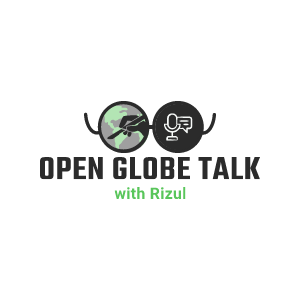December 15, 2022
Episode 32: Dr. Tetyana Schneider, PhD & Hannah Baker, MA
A discussion on
“Incorporating a global ophthalmology curriculum within residency training”
Treating global health as an integral part of residency education
Video
Audio
Dr. Tetyana Schneider, PhD
& Hannah Baker, MA
We are excited to host two incredible guests coming from the University of Wisconsin-Madison who have been integral in the management of its Global Ophthalmology curriculum. Please join us in welcoming Dr. Tetyana Schneider, PhD and Hannah Baker, MA!
Dr. Schneider obtained her PhD in Education Leadership and Policy Analysis from UW-Madison. Among her many roles, she is part of faculty development, medical student education, residency program education, clinical fellowship programs, global ophthalmology initiatives, faculty pre-promotion oversight, and clinical adjunct faculty oversight. Mrs. Hannah Baker obtained her MA in social innovation and sustainability leadership, Education leadership from Edgewood College. She is also part of multiple programs at DOVS, some of which include the Global ophthalmology initiatives and clinical fellowships.
In our discussion today, we will learn about how DOVS is pioneering curriculum for global education during residency and building the essential foundations needed to produce physicians who are equipped to deal with local and global underserved needs. We go over the origins of the program and how it has been shaped by multiple individuals who are authentic to global education.
This is a much-awaited episode, and it is just in time for the holidays for your viewership!
Key discussion points:
How did you get involved with the DOVS GO curriculum?
What led to the formalization of the GO curriculum?
Origins
Two amazing faculty champions who helped found the early global initiatives
Dr. Suresh Chandra, MD
Pioneer in developing “Combat Blindness Internation”
Goal: Establish connection throughout India and a variety of other countries
Established OUR labs in Aravind
Develop quality low-cost IOLs
In 2001 helped found the division of international ophthalmology within UW
Dr. Guillermo de Venecia’s free rural eye clinic (FREC) in 1978 (Manila, Philippines)
2016 - division of international ophthalmology became international ophthalmology which later became global ophthalmology.
Holistic approach
Leadership and strategic leadership of Dr. Terri Young, Dr. Cat Burkat, and Dr. Yasmine Bradfield
DOVS curriculum
Three years
Includes readings, reflections, and projects.
Recognizes residents who fulfill requirements and demonstrate competency in the global curriculum.
Provides certificate that qualifies residents that they can address underserved needs.
It does provide long-term impact.
1) Engagement with long-term alumni and connecting them with residents
2) Advocacy is a big component
Global ophthalmology curriculum is still under-developed nationwide.
For example: ACGME only indicates elective international experience in its common program requirements but no guidance and nothing about global ophthalmology specifically.
It’s an urgent need to be addressed in some cases.
Do you need to have prior international experience?
No! The program meets different needs
Focus on development from first year to the final year
Measuring the metrics for resident growth
What does growth mean?
Difficult to measure to what extent someone is a global citizen
Developed qualitative measurements
Also looking at core competencies within ACGME and asking about where we are at in interpersonal communications.
Supporting global ophthalmology initiatives
Providing additional funding to faculty who are interested in developing GO-related curriculum
“It’s not extra, it’s a part”
“We are clinicians but also educators”
Using existing resources and not necessarily adding extra work on residents
Bilateral training approach
Holistic support for global partners
Unique factor about UW DOVS: “We want to ensure equitable offering to all trainees”
Tailoring curriculum for residents and acknowledging that there is so much more learn!
Further development
Create a platform for trainees here and abroad!
Fun facts about Madison, Wisconsin
Four seasons
Variety of food!
Dairy: Cheese curds
Babcock ice cream
Diverse and a family place
Outside and weekend activities
Episode-based Resources:


